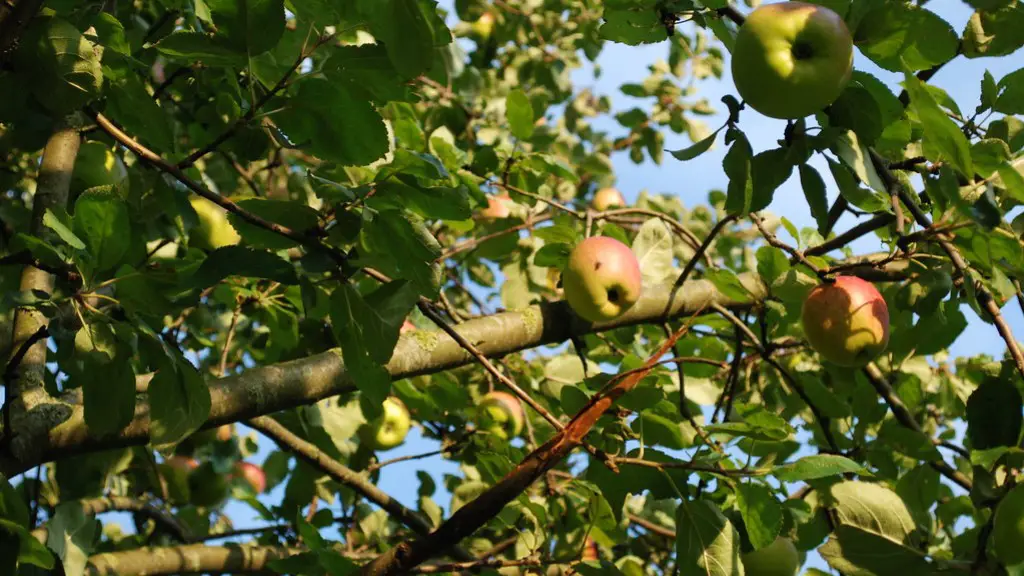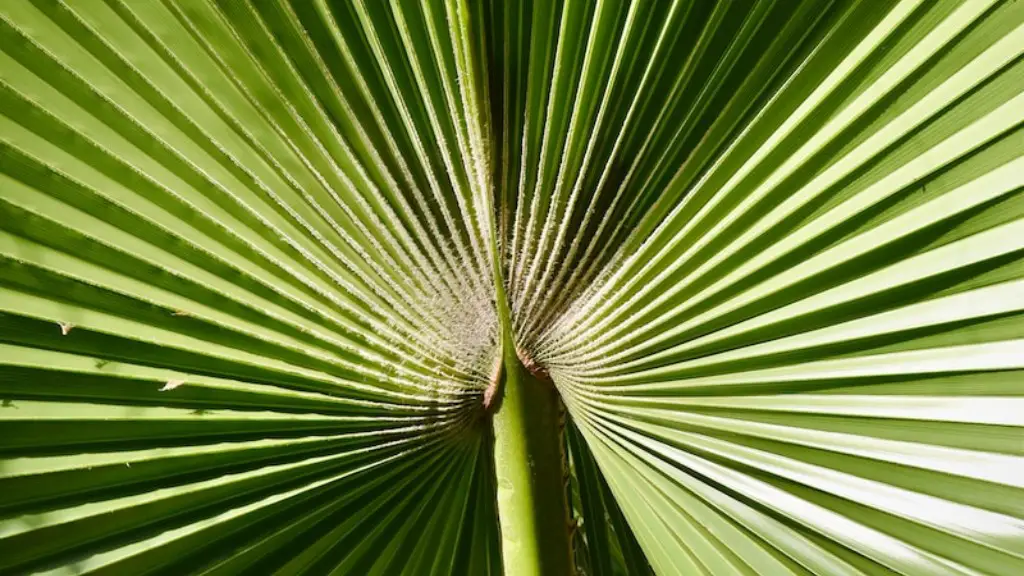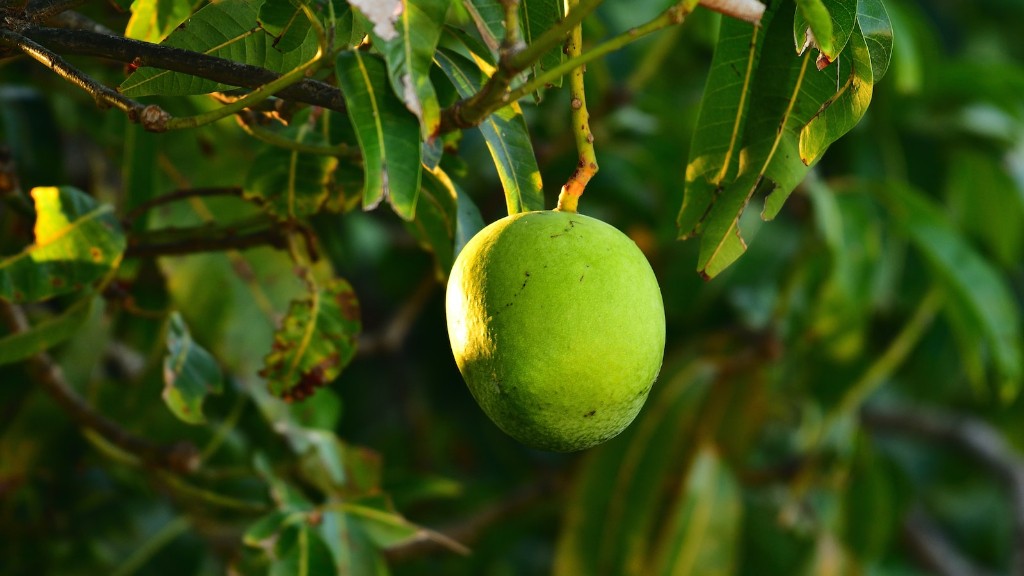An apple tree is a deciduous tree in the Rosaceae family which bears fruit, called apples. Apple trees are cultivated worldwide and are the most widely grown species in the genus Malus. Apple trees are very hardy and can survive in different types of climates, from tropical to temperate. Apple trees have shallow root systems and require frequent irrigation, but they can survive in dry conditions. Apples can be eaten fresh off the tree, used in cooking, and processed into other food products such as jams, jellies, and cider.
Apple trees need full sun to thrive and bear fruit. They should be planted in well-draining soil that has been enriched with mulch, compost, or manure. Apple trees require pruning during the spring and summer months, as well as thinning in the summer to prevent crowding of the branches. They also need regular watering and annual fertilization to keep the fruit healthy and delicious.
Apple trees can be propagated by grafting or by budding. Grafting involves inserting a scion, a piece of a mature apple tree, onto a different rootstock, while budding involves inserting a bud into the bark of a tree. In both cases, the tree will use the scion or bud to generate its own stem and, eventually, flowers and fruit. The rootstock used for apple trees depends on the type of soil and climate the tree is being planted in.
Harvesting apples from an apple tree can be a tricky business. For the best tasting apples, it is important to wait until the apples are ripe before picking them. Different varieties of apples have different ripening times, so it is important to know when the apples are ready to be harvested. Apple trees can be harvested manually or with the help of a picking machine.
Apple trees are valuable additions to any landscape. Although they require some maintenance, they will provide years of delicious fruit and can be an enjoyable hobby for many gardeners. With the right soil, climate, and care, an apple tree can give many years of enjoyment for all ages.
Types of Apple Trees
Apple trees come in a variety of types that include both standard and dwarf varieties. Standard apple trees can grow to heights of 15-25 feet, while dwarf varieties grow to 8-12 feet. Standard varieties produce more apples and are more suited for larger farms, while dwarf varieties are better suited for backyard orchards and gardens.Since different apple varieties require different growing conditions, it is important to research the right apple tree for your climate and soil.
Pests and Diseases of Apple Trees
Apple trees can be vulnerable to pests such as aphids, spider mites, and borers, as well as a variety of fungal and bacterial diseases. To prevent and control these pests and diseases, good horticultural practices are important. These include regularly scouting for pests and diseases, planting resistant varieties when possible, and using a combination of chemical and non-chemical control methods.
Growth Habits of Apple Trees
Apple trees have varying growth habits, depending on the cultivar and climate. In general, apple trees have a reasonably rapid growth habit, with an average of one to two feet of growth per year. They can reach maturity in five to seven years. Apple trees require frequent pruning to maintain their shape and to increase fruiting potential. Proper pruning also encourages more vigorous growth and helps control pest and disease problems.
Storage of Apples
Apples must be stored properly in order to maintain their freshness and taste. Apples should be stored in a cool, dry location, and they can last up to one month if stored properly. Apples can also be stored in the refrigerator to keep them fresh longer. Apples can be frozen for up to six months, but the texture and flavor of the apple will be compromised when thawed.
Nutritional Value of Apples
Apples are full of nutrients and are a great source of dietary fiber, vitamin C, and a variety of other vitamins and minerals. Apples are also low in calories and are a great source of antioxidants, which can help protect the body from disease. Apples are an excellent addition to any healthy diet and can provide many health benefits.


